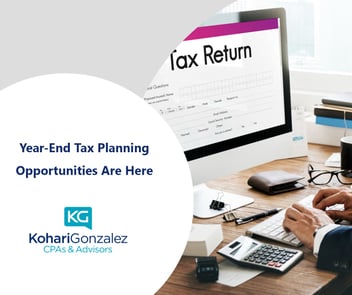 With key provisions of the Tax Cuts and Jobs Act (TCJA) set to expire at the end of 2025, uncertainty around future tax legislation has been a major concern for businesses and individuals alike. However, the results of the 2024 election provide more clarity on what may lie ahead for U.S. tax policy.
With key provisions of the Tax Cuts and Jobs Act (TCJA) set to expire at the end of 2025, uncertainty around future tax legislation has been a major concern for businesses and individuals alike. However, the results of the 2024 election provide more clarity on what may lie ahead for U.S. tax policy.
A New Era in the White House
The 2024 election results are in, and Donald Trump will return to the White House for a second term. Republicans have gained control of both chambers of Congress, setting the stage for major legislative initiatives, including tax reform. As significant portions of the TCJA approach their expiration date, a Republican-controlled government is likely to push for an extension of these provisions. While the overall direction is clearer, specific details of potential changes won't emerge until the new Congress begins its deliberations in January 2025.
Expiring TCJA Provisions
The TCJA, passed in December 2017, brought sweeping changes to both individual and business tax codes. However, many of these changes were temporary due to budget reconciliation rules, which limited the bill’s impact on the federal deficit to within a 10-year budget window. If Congress takes no action, the following major changes will take effect in 2026:
- Individual tax rates will increase, with the top rate rising from 37% to 39.6%, and several mid-level brackets also increasing.
- The standard deduction will decrease, though personal exemptions will return, and the deduction for state and local taxes (SALT) will no longer be capped.
- The child tax credit will be reduced from $2,000 to $1,000.
- Business tax provisions, such as the 20% qualified business income deduction (QBID) for pass-through entities, will expire.
The Republican Agenda
President-elect Trump and Republican leaders have indicated they will seek to extend many of the TCJA’s provisions, including retaining the lower individual tax rates and extending the QBID. Additionally, they have floated several new proposals, such as:
- Lowering the corporate tax rate to 15% for businesses producing goods domestically.
- Excluding tips, Social Security benefits, and overtime pay from taxable income.
- Expanding deductions, such as allowing interest on auto loans to be deductible.
However, the legislative process will not be without challenges. With narrow majorities in both chambers, Republicans will need to create consensus within their ranks to pass any significant tax legislation, especially since budget reconciliation may be the only feasible path to avoid a filibuster in the Senate.
Potential Timelines for Tax Legislation
While the general direction for tax policy is clear, the timeline for implementing these changes remains uncertain. Republican leaders have suggested they aim to advance tax legislation within the first 100 days of Trump’s new term, which means that tax discussions could start as early as February 2025. However, as seen with the original TCJA, negotiations can take months, meaning new legislation may not be finalized until late 2025.
What Taxpayers Can Do Now
Though the specifics of upcoming tax changes remain in flux, taxpayers can take a few preparatory steps:
1. Identify Priorities: Evaluate which aspects of tax policy will have the biggest impact on your personal or business finances, whether it's tariffs, deductions or specific tax credits.
2. Engage with Lawmakers: Consider engaging with trade organizations or industry associations to help advocate for policies that will benefit your business.
3. Model Potential Impacts: Conduct modeling exercises to see how potential tax changes might affect your finances. Even rough calculations can provide a helpful starting point for planning and budgeting.
Stay Informed
As tax policy evolves, staying informed will be key to understanding how changes will impact your financial situation. We'll continue to monitor developments and provide updates on what taxpayers need to know.
If you need assistance understanding how these potential changes might impact you or your business, feel free to reach out to our team for tailored advice and guidance.



